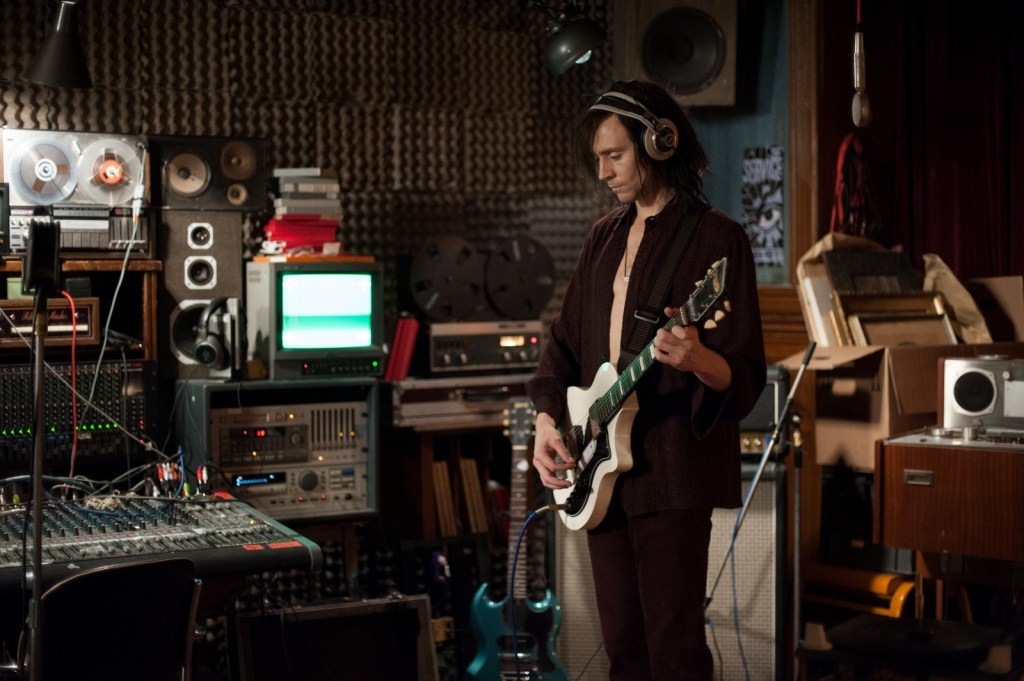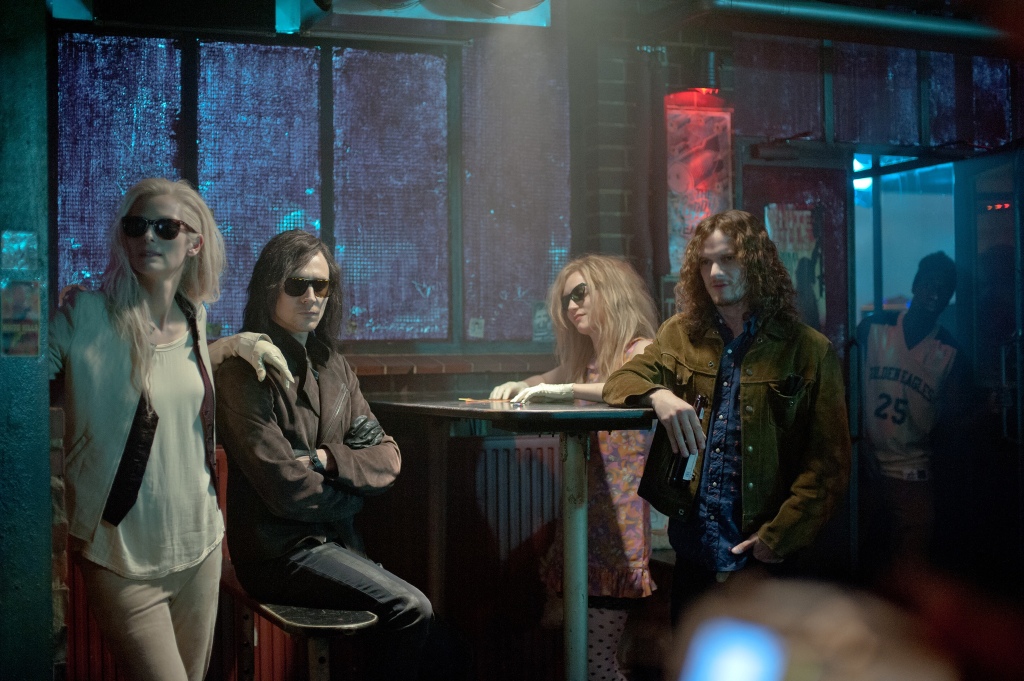ONLY LOVERS LEFT ALIVE
Dir. Jim Jarmusch
2013
Core dividing lines on the reception of Only Lovers Left Alive come down to one question – are the immortal vampire artists Adam and Eve, portrayed as burned out gen-X rock idols by Tom Hiddleston and Tilda Swinton, the coolest icons of hipster culture ever or semi-pretentious dorks? Division on that answer sets up so much of where a viewer’s sympathies lie, whether or not you think their lives are suffocatingly tedious or eternally romantic. I was originally set up by film critics to believe they were meant to be as cool as Jim Jarmusch himself, and in watching I realized too many of the film critics I read spent most of their free time reading Wikipedia pages about the Christopher Marlowe/William Shakespeare conspiracy and Rolling Stone magazine. To be clear, I actually think the film works either way – it’s just that it creates a huge split on how you choose to read the central characters.
According to Adam, the world is dying. The “zombies” (read: us) are polluting our spaces and our bodies, fighting over oil when we should be fighting over water, desecrating our architecture and dishonoring our scientists. All the vampires are experiencing some of the negative outflow, here – human blood itself is more full of toxins (well, toxins to vampires) and a bad batch can spell the end for these immortals. He’s taken on the persona of a reclusive rock star who doesn’t want any of his music being published, a droning noise rock played by Jarmusch’s own band SQÜRL. If you see Adam as the arbiter of cool, this dismay is cosmic in scope, an indictment of humanity – we have a living god, and we have failed him. If you see him as a self-pitying dweeb, you hear him say “I don’t have heroes” and it’s easier to notice when Eve finds his wall of fame with photos of Buster Keaton, Jimi Hendrix, William S. Burroughs, RZA.
“I don’t have heroes.” Adam actually doesn’t have heroes. Heroes fight valiant adventures and die. He’s made art religion, and these are idols. The work got out there – they’re immortal. Gods. He knows as well as anyone that the world is still alive. And we see that reinvigoration happen late in the film when he sees a live performance and finds it admirable. Eve tells him about the singer and says, “She’s going to be very famous.” Adam says, “God, I hope not. She’s much too good for that.” Shut up, nerd!
But whether or not they’re performing some of the exhaustion, Adam and Eve live sad, tired lives. They’re married, and they love one another, but they also need years or more apart. They’ve built lives on different continents because they badly need their space. Adam is contemplating oblivion – Eve is a little more comfortable because of her friendship with Kit Marlowe (John Hurt, perfectly warm) but knows he’s starting to become less lucid. While they take joy in so many little things, so many familiarities, they despair in different resignations. Eve is certainly more upbeat, but Tilda plays her as a little too placid, a little too indifferent, and the moments of sincere disappointment bring out a volatility.
That sadness comes between so many little bouts of tastemaking, art celebration, and is surrounded by a very funny supporting cast. Anton Yelchin plays the sweet Renfield to Adam’s Dracula, a young rock fan named who seems to be a middleman for expensive goods. He’s deferential, naive, and overwhelmed to meet people he admires. Jeffrey Wright plays Adam’s supplier of “the good stuff,” and his big scene is so funny, played as a too-cool-for-school doctor and dealer. Wasikowska plays Eve’s sister Ava as a menacing socialite lush, and you immediately get why Adam is so loath to let her visit. The movie is funny, cute, and everyone is having a good time. It’s really only when Jozef van Wissem’s lute score takes focus that the tragedy will set back in.
Hipster cool is consistently identified as the core of Jim Jarmusch’s appeal beyond the independent cineaste landscape. He exports cool bands, cool actors, vibes, and haunted landscapes in urban settings. That Gen-X cool is also occasionally appropriative, performative, and insular. I think what makes Only Lovers Left Alive stand out among Jarmusch’s films is that it gives the audience space to both admire and laugh at the speed with which these hipster vampires can identify wood grain by its Latin name or cite the exact year of a release. That admiration and amusement doesn’t come at the expense of the film’s dramatic stakes, either, and it became a gateway to the slow cinema Jarmusch has often cited as an admiration.

